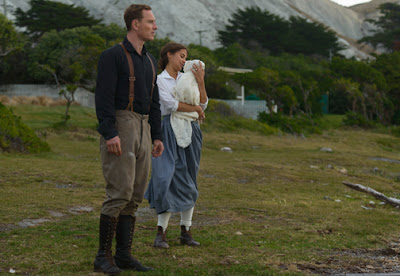4.5 stars. Rated PG, for occasional dramatic intensity
By Derrick Bang • Originally published in The Davis Enterprise, 9.30.16
Inspirational stories don’t come
much more heartwarming than this one.
Queen of Katwe depicts the unlikely saga of
Phiona Mutesi, a Ugandan slum girl who, despite overwhelming odds both cultural
and socio-economic, grew up to become one of her country’s first titled female
chess players. And — mind you — she’s only 20 years old, as these words are
typed.
 |
| As Coach Robert Katende (David Oyelowo, standing) watches expectantly, Phiona (Madina Nalwanga, far left) plays a telling game of chess against Benjamin (Ethan Nazario Lubega, far right). |
Director Mira Nair’s fact-based
account of Phiona’s rise to chess glory is earnest and uplifting, while also
unflinching and uncompromising. Our immersion in the Ugandan slum of Katwe
can’t help drawing anguished gasps: this despite the fact that scripter William
Wheeler — adapting Tim Crothers’ January 2011 ESPN Magazine article and
subsequent book — clearly has glossed over some of the grimmer details.
This is, after all, a
family-friendly Disney drama; unduly horrifying the target audience would have
been a serious mistake. But Nair and Wheeler nonetheless make their points,
most notably the tragedy that results every time a child’s inquisitive mind is
blunted — or shut down — by environmental circumstance.
We can but wonder: How many other
Phiona Mutesis are Out There, waiting to have their respective passions
nurtured? Each and every one left unfound, uninspired, is an incalculable loss.
Nair is blessed further by a
talented roster of performers, beginning with stars Lupia Nyong’o, David
Oyelowo and Madina Nalwanga; rarely has the input of a casting director — in
this case, Dinaz Stafford — yielded such impressive results. While it’s true
that Nair is a gifted director with the skill to extract nuanced performances
from her actors, these efforts clearly are easier when granted such gifted raw
materials from which to sculpt the characters.
Nair has a long and productive
history with ensemble dramas that place their protagonists at a cultural
crossroads, from Salaam Bombay and Mississippi Masala to Monsoon Wedding and The Namesake. We can’t help identifying with the characters in her
films, who struggle with grace and dignity to navigate generational gaps,
language barriers and institutional hurdles, all while trying to remain true to
themselves.









